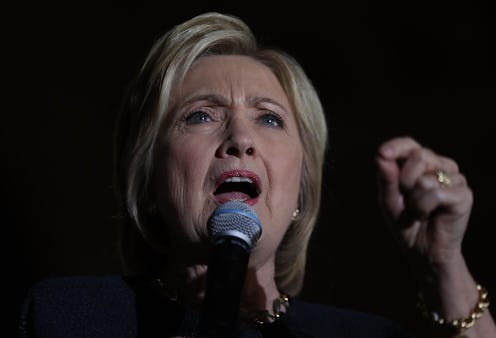News
How Do Candidates Actually Get Nominated?
More than any other presidential election in recent memory, the 2016 cycle been a story of process. The esoteric parts of elections that normally languish in obscurity, like delegate allocation methods, have received far more media attention than in most cycles. But it’s also worth backing up and asking a more fundamental process question: How do conventions nominate candidates officially?
It’s slightly different in each party, but the general process is the same. First, all of the delegates gather in the main convention room and divide themselves up according to which state or territory they represent. Then, the balloting begins: One by one, every state and territory reads off the number of delegates that each candidate received in that state or territory.
It’s at this point in the process that Democrats and Republicans diverge, albeit only slightly. In the GOP, the chair of the convention reads off the delegate totals and declares the delegate winner the official nominee of the party. The Republican Party’s convention rules don’t require the convention chair to do this immediately after reading off the delegate totals, only that they must do so at some point before the convention adjourns.
In the Democratic Party, things work a bit differently. After all of the states and territories have read off their delegate totals, the chair of the convention invites whichever candidate has a majority of delegates up to the stage to make an acceptance speech. It’s only after the presumptive nominee finishes their speech that they officially become the presidential nominee of the Democratic Party.
While these details can seem pedantic, they do drive home a very important point about the nomination process: Parties, not voters, choose the nominee. Amidst all of the talk about primaries and caucuses, it’s easy to fall under the impression that the voters in each party directly choose their nominee, but that’s simply not how it works. Delegates act as an intermediary between voters and the candidates, and they’re the ones who, in the most technical sense, actually choose a nominee.
Of course, there are a whole bunch of rules in both parties that govern how delegates vote, and who they’re allowed to vote for. These rules are endlessly complex and vary from state to state, but this year, they’re probably not going to matter very much. If Hillary Clinton and Donald Trump are the nominees, which they most likely will be, that will mean that each party has nominated the candidate who received the most votes in the primaries. Despite all of the fuss about brokered conventions and superdelegates earlier in the cycle, it's looking like this year's primaries will ultimately be quite democratic indeed.
